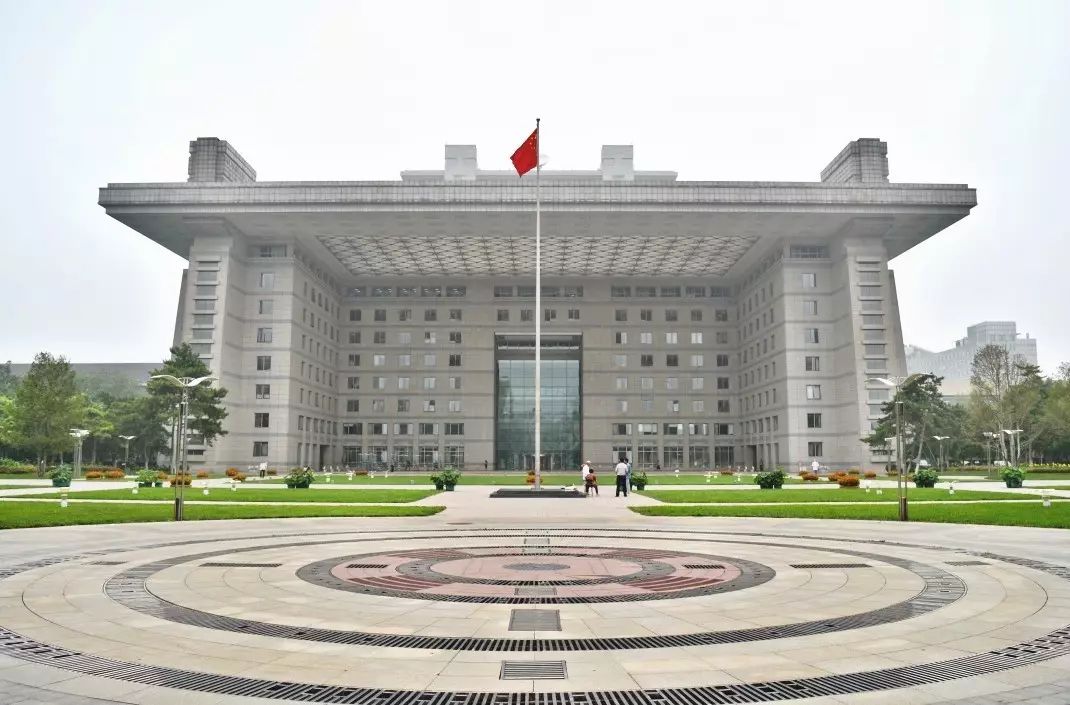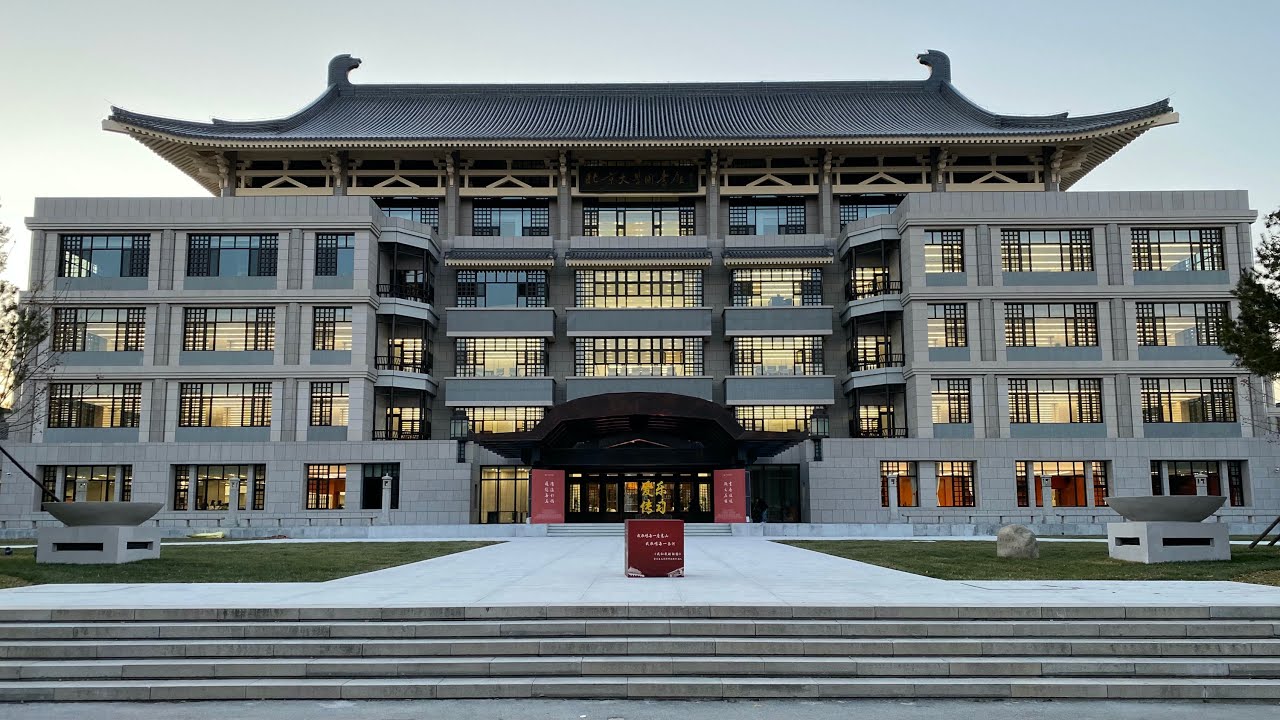Peking University, often referred to as “Beida” (北大), stands as one of China’s most prestigious and globally recognized institutions of higher learning. Founded in 1898, it was the first modern national university in China, integrating Western academic models with traditional Chinese learning. Over the years, it has established itself not only as a beacon of academic excellence but also as a symbol of China’s intellectual growth and cultural identity. With its deep-rooted history, top-tier faculty, and commitment to innovation, Peking University (PKU) has consistently played a vital role in shaping China’s academic and socio-political landscape.
History of Peking University
Founding and Early Years
Peking University’s story begins at the turn of the 20th century when China was undergoing rapid modernization in response to the fall of the Qing Dynasty. Originally founded as the Imperial University of Peking, it was the first comprehensive institution to offer education in a range of disciplines using Western methods. The university emerged as a catalyst for intellectual reform, promoting science, democracy, and progressive thought during a period of national transformation.
Evolution Through Political and Social Changes
The university has survived and thrived through various political changes, including the tumultuous periods of the Republican Era, the Second Sino-Japanese War, and the founding of the People’s Republic of China. Throughout these phases, it adapted to the political climate while maintaining its status as a hub for free thought, often serving as the birthplace of major student movements, including the May Fourth Movement in 1919.
Key Milestones in the University’s History
Among its key historical moments are its role in shaping modern Chinese language and literature, leading reformist and revolutionary movements, and producing influential intellectuals and politicians who have left a profound mark on Chinese society.
Location and Campus
Main Campus in Beijing
Located in the Haidian District of Beijing, Peking University boasts a sprawling and picturesque campus that blends traditional Chinese architecture with modern educational facilities. The Weiming Lake and Boya Pagoda are central symbols of the campus, often serving as peaceful spaces where students gather for inspiration and reflection.
Architectural Highlights
The architecture of PKU is a harmonious blend of historical Chinese design and contemporary structures. Buildings like the Yenching Academy, which hosts many international students, exhibit the university’s blend of ancient wisdom and modern innovation. The campus is a living museum, where centuries-old pavilions coexist with cutting-edge research labs.
Cultural and Historical Significance
The campus is not just a place of learning but a historical monument. Many of its buildings and gardens reflect traditional Chinese philosophy and cultural heritage, making it a unique place of study where past and future merge seamlessly.
Academic Excellence
Schools and Departments
Peking University offers a vast array of programs across numerous fields, including the humanities, social sciences, natural sciences, medicine, and engineering. The university is especially renowned for its schools of Economics, Law, and Medicine, which attract top students from across the globe.
Prestigious Programs and Courses
PKU’s Yenching Academy, a global fellowship program, stands out as one of the university’s most prestigious offerings, bringing together scholars from around the world to study Chinese civilization, economics, and governance. Additionally, its programs in physics, mathematics, and philosophy consistently rank among the top worldwide.
Research Achievements
The university has made significant contributions to global knowledge, particularly in fields like artificial intelligence, biomedicine, and environmental science. Its researchers have been at the forefront of breakthroughs in areas such as genetic research and quantum physics.
Notable Alumni
Peking University’s alumni network includes an impressive array of influential figures across various domains.
- In Academia: Scholars like Qian Sanqiang, a nuclear physicist, and Cao Tianqin, a biochemist, were trailblazers in their fields.
- In Politics: Former Chinese Premier Li Keqiang and reformist leader Hu Shih studied at PKU, both contributing to China’s political evolution.
- In Business and Science: Many tech entrepreneurs and scientists who lead global companies and research institutions have passed through its doors.
Faculty and Staff
Peking University’s faculty includes some of the most distinguished scholars in China and globally. Many professors hold joint appointments with leading international universities, contributing to a rich intellectual ecosystem. The faculty’s commitment to excellence is evident in the university’s consistently high research output and its global partnerships with top academic institutions.
International Collaborations

PKU maintains strategic partnerships with universities across the globe, including Harvard University, Stanford University, and the University of Tokyo. These collaborations enable student exchange programs, joint research projects, and international conferences, enhancing the university’s global footprint.
Student Life at Peking University
Life at Peking University is vibrant and dynamic. With a student body that includes both domestic and international students, the campus is a melting pot of cultures. Students can participate in a wide range of activities, from academic conferences to cultural festivals. The university also offers over 300 student-run organizations, covering interests from literature to robotics.
Admissions Process
How to Apply: National and International Students
Admission to PKU is highly competitive. For Chinese students, the Gaokao exam is a major component, while international students are evaluated through a combination of academic transcripts, interviews, and standardized tests like the HSK (Chinese proficiency test) or TOEFL/IELTS.
Entrance Exams and Selection Criteria
The university looks for academic excellence, leadership qualities, and a strong commitment to community service. Scholarships are available for both national and international students, making it accessible to a diverse range of applicants.
Research and Innovation
PKU is renowned for its cutting-edge research in fields such as nanotechnology, climate science, and artificial intelligence. Its state-of-the-art laboratories and research centers foster a culture of innovation, contributing to advancements that have a global impact.
Peking University’s Role in Chinese Society
Beyond academia, Peking University plays a critical role in shaping modern Chinese society. Its intellectuals have historically been involved in national policymaking, social reforms, and advocacy for democratic values.
Rankings and Global Recognition
Peking University consistently ranks among the top universities worldwide. In the QS World University Rankings, it is often placed within the top 30 globally, with particularly strong performances in disciplines like engineering, social sciences, and natural sciences.
Challenges and Future Prospects
As it looks to the future, PKU faces challenges such as maintaining academic freedom in a rapidly changing political environment. However, its dedication to innovation, global collaboration, and research excellence positions it well for continued success.
Cultural Significance of Peking University
PKU is not just a university; it’s a symbol of China’s rich cultural heritage and a platform for progressive thought. From its role in the May Fourth Movement to its current contributions to global education, the university remains a key player in both the cultural and intellectual domains.
Conclusion
Peking University’s legacy is one of academic excellence, cultural heritage, and societal impact. As it continues to evolve and adapt to new global challenges, PKU remains at the forefront of China’s educational landscape, embodying both the past and future of Chinese academia.
FAQs
- What is Peking University famous for?
Peking University is renowned for its academic excellence, historical significance, and contributions to Chinese intellectual thought. - How does Peking University compare to other top universities in China?
PKU is often considered one of the top two universities in China, alongside Tsinghua University, with strengths in humanities, social sciences, and natural sciences. - Can international students apply to Peking University?
Yes, international students can apply and are encouraged to join through various programs, including the Yenching Academy and standard undergraduate/graduate applications. - What are the living conditions like on campus?
PKU offers modern dormitories, dining facilities, and recreation areas, ensuring a comfortable and engaging campus life for students. - What makes Peking University unique?
Its combination of historical legacy, academic rigor, and global outlook sets Peking University apart, making it a unique institution in the world of higher education.
